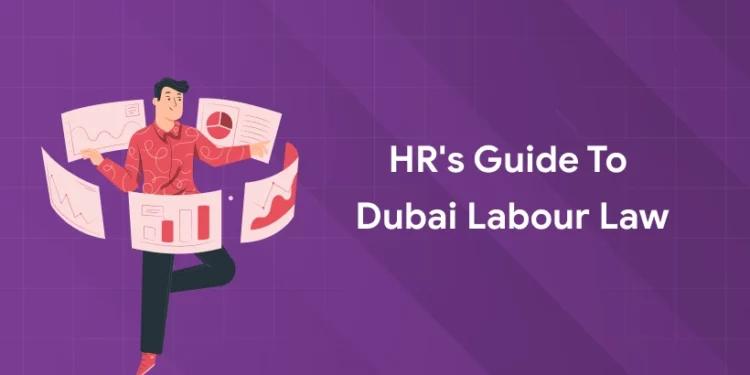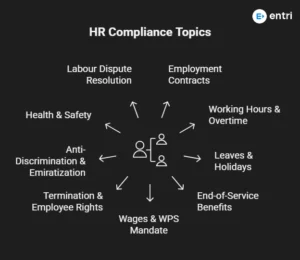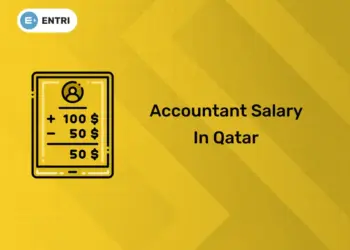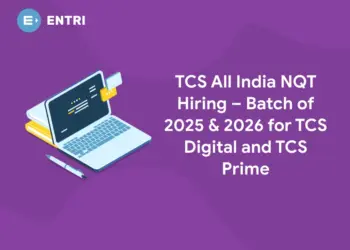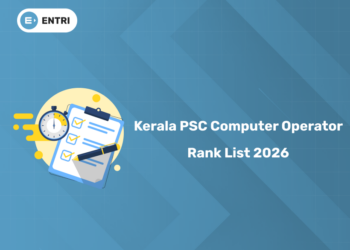Table of Contents
The land of opportunities has always been a magical world for individuals across the globe. A major part of that attraction goes to the well-structured labour laws that have upheld the Dubai workforce scene. As an HR, having an understanding of the labour laws will help you hire the perfect candidates for each. Additionally, you get to provide a smooth onboarding process for the new hires. This blog acts as an ultimate HR’s guide to Dubai Labour Laws.
Key Takeaways:
- All Dubai private sector employees now require fixed-term contracts (max 3 years), with contract renewal permitted by mutual agreement.
- Key HR compliance areas in 2025 include written employment contracts, overtime management, and the Wage Protection System (WPS).
- Major leave policies (annual, maternity, paternity, sick) and end-of-service gratuity are legally mandated and favor expats and locals alike.
- Flexible work models—including part-time, remote, and temp contracts—are officially recognized in the UAE labour code.
- Staying up-to-date with HR policy changes and leveraging professional HR upskilling (like Entri’s HR Management Course) is vital for legal and career success.
Introduction: Why Dubai Labour Law Demands Your Attention
Dubai’s business landscape in 2025 is buzzing with opportunity—a thriving hub where global companies and talent converge at record speed. With thousands of new businesses launching each quarter and constant shifts in workplace laws, Dubai stands out as one of the world’s most dynamic employment markets.
This rapid growth places HR professionals at the center of both compliance and opportunity. Navigating Dubai Labour Law is no longer just paperwork—it’s a strategic skill set needed to onboard, manage, and retain talent effectively. Whether leading recruitment, managing expatriate staff, or shaping company policy, knowing Dubai’s updated labor code gives HR teams a genuine advantage.
Secure your career in HR Management with Entri. Enrol now!!
Core Principles of Dubai Labour Law
Dubai’s labour system is built on strong legal foundations, continuous modernization, and a genuine commitment to employee welfare. By 2025, these are the principles every HR professional and business must follow for compliance and optimal workplace outcomes:
1. Legal Framework and Scope
-
All private-sector employment in Dubai is governed by Federal Decree-Law No. 33 of 2021 (and amendments through 2024/2025), aligning the UAE’s framework with global standards.
-
This law covers the entire private sector except for free zones like DIFC/ADGM, which operate under separate employment regimes.
2. Mandatory Fixed-Term Contracts
-
All employment relationships must be governed by a written, limited-term contract (up to 3 years; renewable or extendable by agreement). Unlimited contracts are no longer lawful and must be converted.
-
Contracts must be digitized and registered with MOHRE, with both employer and employee retaining official copies.
-
If a contract lapses but work continues, it is automatically renewed under the same terms.
3. Recognition of Flexible Work Arrangements
-
The law legally supports various work models, including full-time, part-time, temporary, flexible, remote, and job-sharing—making it easier for businesses and employees to tailor working conditions.
-
These arrangements provide employees with comparable rights and benefits, regardless of their category, boosting workplace inclusivity and engagement.
4. Definitive Rights and Obligations
-
Employees are legally entitled to annual leave, sick leave, maternity/paternity leave, end-of-service benefits, and workplace safety protections.
-
Employers must comply with the Wage Protection System (WPS) for salary payments, maintain rigorous documentation (leave, contracts, hours), and uphold timely wage payments—failure to do so triggers fines and business restrictions.
5. Working Hours, Rest, and Overtime
-
Standard limits: 8 hours/day, 48 hours/week, with at least a 1-hour break after 5 continuous work hours.
-
Overtime is capped at 2 hours/day and compensated at 125% (regular) and 150% (night or holidays).
-
For outdoor workers: Midday work ban applies (June–September, 12:30–3:00 PM) to protect health and safety.
6. Non-Discrimination and Equal Opportunities
-
Discrimination based on gender, race, nationality, religion, or disability is explicitly prohibited.
-
Equal pay for equal work and protections against forced labor, harassment, or unfair dismissal are enshrined in law.
7. Structured Dispute Resolution
-
The Ministry of Human Resources & Emiratisation (MOHRE) is empowered to mediate disputes—decisions are legally binding (for claims up to AED 50,000).
-
Complex or higher-value claims can be escalated to Dubai’s labor courts, with MOHRE providing mediation and, if necessary, a pathway to litigation.
8. Employer and Employee Mutual Obligations
-
Employers must provide a safe workplace, respect leave and gratuity entitlements, and register employees promptly.
-
Employees must fulfil their roles diligently, follow safety protocols, and maintain confidentiality regarding business information.
Pro Tip: Always double-check contract templates and ensure electronic MOHRE filing for every new hire—leaving paperwork out of compliance is a top reason for penalties.
Explore our free materials, which are optimised for the Gulf!
Become an HR Expert – Enroll in Our HR Management Course Today!
Unlock the secrets to effective Human Resource Management with our expert-led course! Learn recruitment, employee relations, performance management, and more to build a thriving workplace. Start your journey toward a successful HR career today!
Know MoreEssential HR Compliance Topics (2025)
1. Employment Contracts: Required Elements
-
Job title, salary, duties, working hours, annual leave, sick leave, notice periods, and termination clauses must be specified.
-
Both parties must sign and retain copies. Contracts are filed via the MOHRE platform for legal validity.
-
All contract renewals and amendments must follow set procedures to avoid disputes.
2. Working Hours & Overtime
-
Standard: 8 hours/day, 48 hours/week.
-
Ramadan: 2 hours less for Muslim employees, with no reduction in pay.
-
Overtime: Overtime must be compensated at 125% of the regular wage, or 150% for night, rest-day, or holiday work. Capped at 2 extra hours per day.
-
Key HR compliance requirement: Document and monitor hours proactively to avoid WPS or MOHRE violations.
3. Leaves & Holidays
-
Annual Leave: 30 paid calendar days/year after 1 year of service.
-
Sick Leave: Up to 90 days/year, with staggered pay (full, half, unpaid).
-
Maternity Leave: 60 days (45 paid + 15 half-paid); Paternity: 5 working days.
-
Special Leave: Bereavement, study leave, and more are clarified under the law.
Meaning: Paid leave entitlements benefit both locally hired and expatriate staff in Dubai, supporting wellbeing and employee retention strategies.
4. End-of-Service Gratuity & Benefits
-
Gratuity: 21 days’ basic salary/year for the first 5 years, then 30 days/year after that.
-
Calculation: No gratuity deducted for resignation (unless specific contract breaches apply). The amount is based on the basic salary—not total compensation.
-
Alternative pension schemes: Mutually agreed conversion to retirement savings/pension funds is permitted.
5. Wages & WPS Mandate
-
Wage Protection System (WPS): All salaries must be paid officially, electronically, and on time via WPS, or risk business license suspension and fines.
-
No federal minimum wage for expats (minimums set for Emiratis based on education/sector).
Tip: HR or payroll software with WPS compliance is essential for efficient and legal payroll management in Dubai. For deeper understanding, explore Entri’s HR analytics and payroll management modules.
6. Termination, Notice, and Employee Rights
-
Probationary Period: Max 6 months; 14 days’ notice required if dismissed during probation.
-
Notice Period: Post-probationary termination/resignation demands 30–90 days’ notice as per contract terms.
-
Termination Justification: Legal reasons include misconduct, redundancy, or performance. Unlawful dismissal (like after a complaint) entitles employees to compensation.
-
Non-compete and training fee clauses: Only valid if reasonable, specific, and contractually agreed.
7. Anti-Discrimination & Emiratization Mandates
-
Law bans discrimination by gender, nationality, religion, or disability. Equal pay for equal work is mandatory.
-
Emiratization: Companies with 50+ workers must achieve 2% annual increase in UAE national hires in select sectors.
8. Health, Safety, and Accommodation
-
Employers must provide a safe work environment, PPE where required, and workplace injury insurance.
-
Labour accommodation is mandatory for low-earning or remote workers (as defined in law).
-
Fines and criminal liability may apply for unsafe conditions or non-reporting of accidents.
9. Labour Dispute Resolution
-
Process: Attempt direct resolution, then file with MOHRE if unresolved. MOHRE mediates for claims up to AED 50,000; labour court covers larger or complex disputes.
-
MOHRE can order continued wage payments during the dispute (up to 2 months).
Tip: If unresolved, document all communication, keep employment records up to date, and consult specialist legal advisers early.
Key 2025 HR Trends in Dubai
Dubai’s HR landscape is evolving rapidly, powered by innovation, compliance demands, and a workforce that is younger and more digital than ever. Staying ahead of these top trends is essential for HR professionals aiming to build future-ready organizations and drive exceptional employee experiences.
1. AI-Driven Recruitment and Automation
-
AI recruiting software is now the norm for screening and shortlisting candidates, cutting hiring time and reducing bias in the process.
-
Automated onboarding, payroll, and performance management systems are freeing up HR for strategic initiatives, with 30% higher hiring quality reported by firms using AI in recruitment.
Also read: Will AI Replace HR Jobs?
2. Data and Analytics at the Core
-
HR decisions are increasingly data-driven, leveraging real-time analytics for workforce planning, talent management, and regulatory reporting.
-
Advanced analytics help spot engagement trends and predict retention risks.
3. Employee Wellbeing and Mental Health
-
Comprehensive employee wellness programs are now central to HR policy, encompassing mental health resources, flexible benefits, and regular well-being check-ins.
-
Companies with strong wellness support see improved retention and productivity.
4. Remote and Hybrid Work Normalization
-
Hybrid work, remote contracts, and job-sharing are now mainstream, making flexible work a key draw for young and international talent.
-
HR is formalizing new policies and systems for managing distributed teams.
-
Keyword: hybrid work policy Dubai
5. Skill-Based Hiring and Continuous Learning
-
Skill-based and competency-based hiring is on the rise, with more investment in employee upskilling, microlearning, and certification programs.
-
HR professionals with up-to-date certifications, such as Entri’s HR Management Course, are in higher demand.
6. Diversity, Equity, and Inclusion (DEI)
-
Gender diversity, equity, and workplace inclusion programs are being prioritized to enhance innovation and comply with new regulations.
-
DEI initiatives are tightly linked to employer branding in 2025.
7. Emiratisation and Local Talent Mandate
-
Stricter Emiratisation quotas mean HR is leading compliance with a 2% annual increase in local hires.
-
Successful firms are integrating Emiratisation into their talent pipelines and succession planning.
8. Employee Experience and Engagement
-
HR is focusing more than ever on building a strong employee experience—through real-time feedback tools, recognition platforms, and transparent communication.
-
High engagement is now seen as a competitive advantage linked to both retention and business success.
Conclusion: Secure Your HR Future—Stay Informed, Stay Compliant
Navigating Dubai’s 2025 labor regulations is an essential HR skill—today’s leaders must master fixed-term contract rules, overtime and leave entitlements, employee rights, and anti-discrimination provisions. With continuous legal changes, a proactive approach to HR compliance and upskilling is not only smart—it’s required.
Take charge of your HR career and guarantee your organization’s legal success. Enrol in Entri’s HR Management Course for up-to-date compliance knowledge, strategic skills, mastery of Dubai labour laws, and comprehensive HR expertise—empowering you to lead confidently in Dubai’s evolving business landscape.
|
Related Articles |
||
| Best Career Options After BA | Skills Required for HR Professionals | |
| Will AI Replace HR Jobs? | ||
| Human Resource Management (Ultimate Guide) | ||
Become an HR Expert – Enroll in Our HR Management Course Today!
Unlock the secrets to effective Human Resource Management with our expert-led course! Learn recruitment, employee relations, performance management, and more to build a thriving workplace. Start your journey toward a successful HR career today!
Know MoreFrequently Asked Questions
What types of employment contracts are mandatory in Dubai for 2025?
All private sector roles require fixed-term contracts (up to 3 years), with renewals permitted. Unlimited contracts are no longer accepted.
Are remote or part-time contracts legal in Dubai?
Yes, UAE labor law recognizes full-time, part-time, temporary, flexible, and remote work models.
How is end-of-service gratuity calculated?
21 days’ basic wage for each of the first five years, and 30 days’ wage for each subsequent year. Calculations are based on the last drawn basic salary.
What counts as unlawful termination?
Any dismissal due to an employee filing a complaint or labor claim is unlawful and can result in compensation for the employee.
What are the penalties for not registering wages through WPS?
Fines, potential business license suspension, and a freeze on hiring/visa processing for non-compliance.
Where can HR professionals upskill with Dubai labor compliance and HR tech?
Entri’s HR Management Course offers the latest legal, practical, and tech-filled curriculum for HR professionals, with placement support and real-world case studies.


